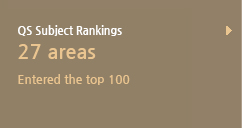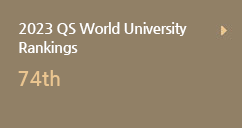
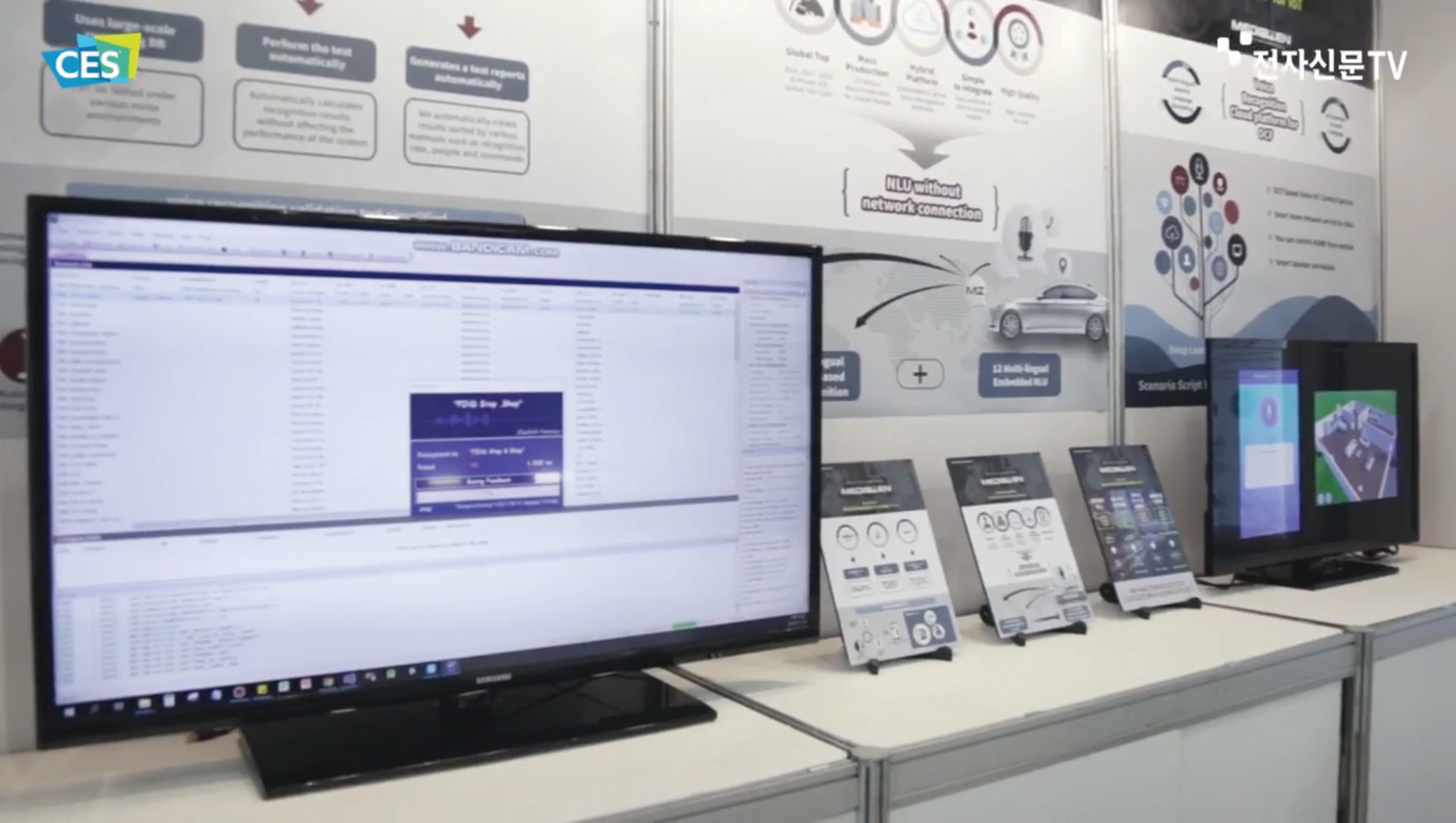
Speech recognition system developed by NAMZ Labs (MediaZen), named among Top 5 Korean Products at CES 2019.
Most master’s and doctoral researchers at NAMZ Labs, the laboratory run by Professor Nam, have non-scientific backgrounds. Of the 35 researchers there, around 80% are from the Department of English Language and Literature, the Department of Korean Language and Literature, and the Department of Education. They all learned programming and mathematics from Professor Nam, and are now quite versed in data and computer science. Professor Nam says, “There are students who majored in liberal arts but in the field of computer science are at the same level or even higher than computer science majors. Their humanities background supplements their programming and mathematical skills, enabling them to identify creative solutions.” NAMZ Labs also has six undergraduate students in its ranks. Researchers are recruited not based on their major but their individual abilities, determination, and potential.
“If there are 10 similar people, you end up with 10 similar ideas. In AI research, creativity is the most important quality. You must respect your students’ individuality instead of trying to force your beliefs on them. There is no fixed role for both professors and students at NAMZ Labs, where we deviate from traditions that have been followed by universities. Here, regardless of your major, gender, academic status, or university, you can find and unlock new opportunities.”
An AI researcher who once gave up on mathematics
NAMZ Labs is the technology research institute of MediaZen, a KOSDAQ-listed company. MediaZen, one of the top automated speech solution providers in Korea, has developed speech recognition systems for Toyota, Volkswagen and Hyundai Motor Group. In addition, NAMZ Labs has delivered speech recognition, speech synthesis, and dialogue processing engines for call centers (Shinsegae Mall, etc.), kiosks (AREX, Seongdong-gu Office, etc.), and language education centers (Korea Poly School, etc.). The lab has a reputation for using the talents of liberal arts students, helping them develop into multidisciplinary professionals through convergence education, with a focus on mathematics and programming.
“Convergence is possible when you embrace diversity. In other words, it is essential to understand and respect diversity. Similarly, you need to have an in-depth understanding of various disciplines in the pursuit of academic convergence. You are mistaken if you think that convergence automatically happens just by gathering together physics majors, computer science majors and linguistic majors.”
The reason is simple. True convergence is possible only when we possess expert-level knowledge in areas outside of our specialization. In other words, we must be skilled in each relevant discipline to the point where it is impossible to distinguish our major. This belief is what motivates Professor Nam to teach IT to humanities majors and to train them to become multidisciplinary professionals.
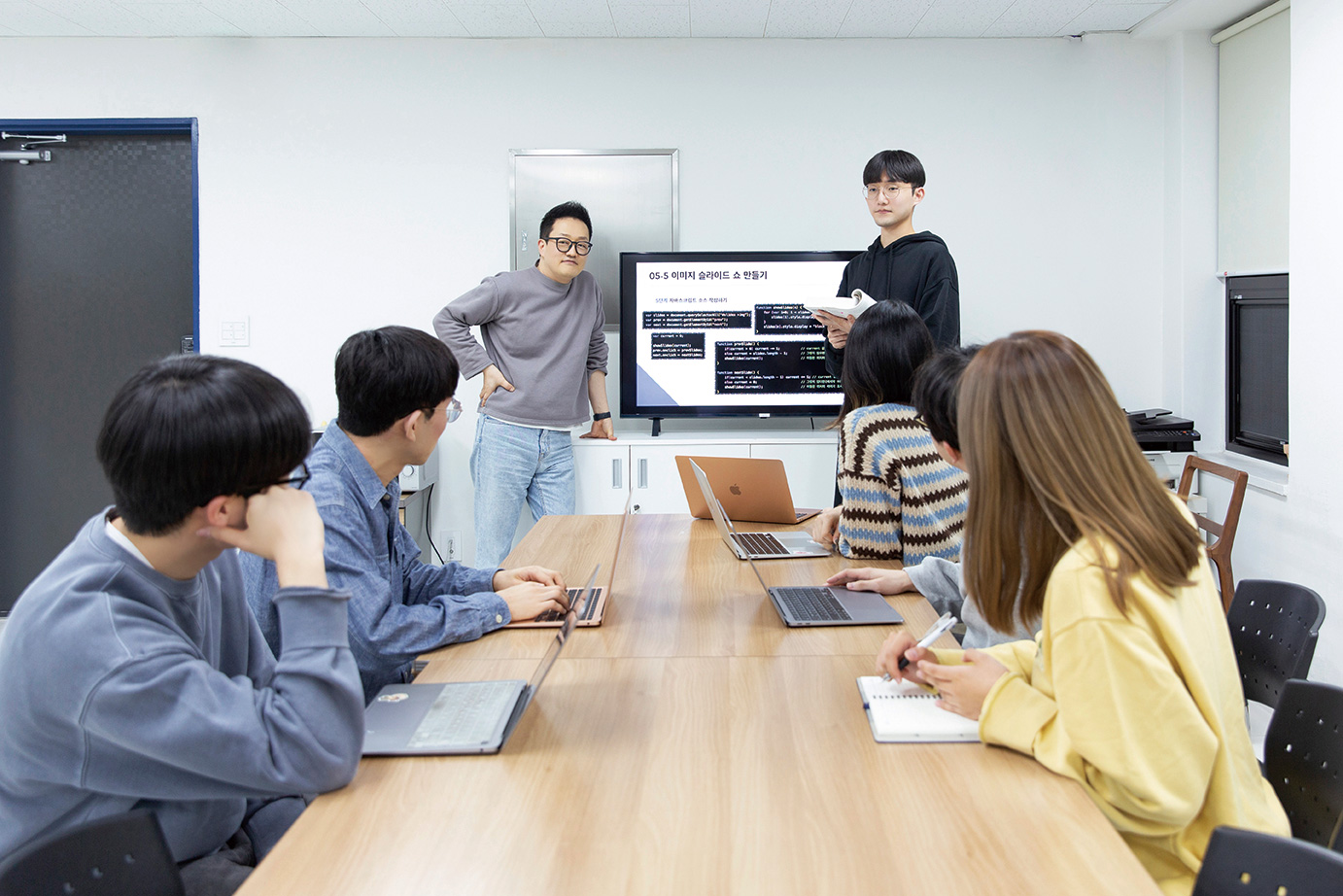
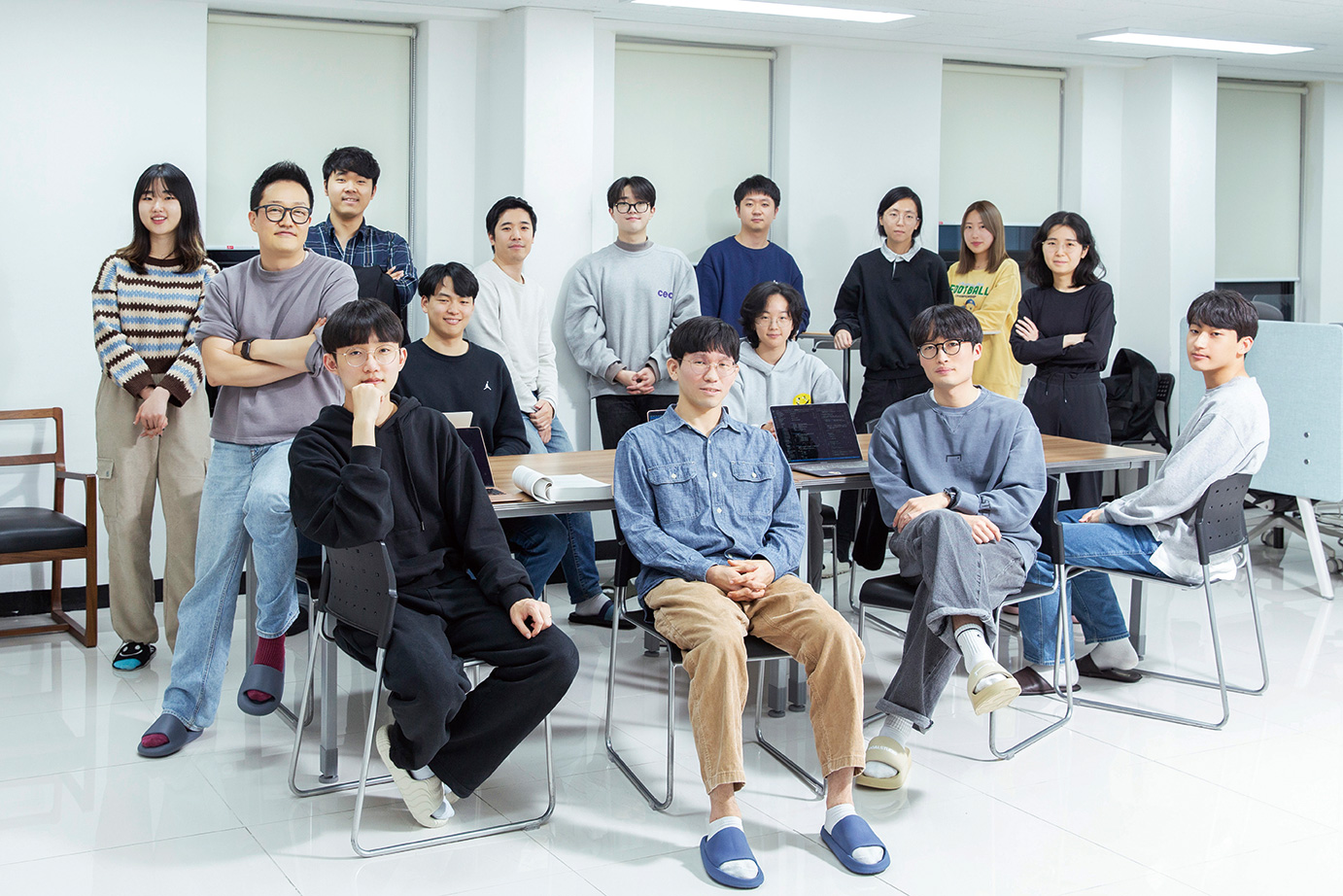
Mathematics, a basic discipline of the fourth industrial revolution
Mathematical knowledge needed to keep up with the times
“At first, I taught students one-to-one like a private tutor, covering advanced topics in programming and mathematics. The students then went on to share what they learned with other students, and solidified their knowledge in the process. I prefer not to use words like ‘management’ and ‘leader.’ We are all living in the same world. I think of the staff and students as colleagues working towards a common goal.”
The hard work of Professor Nam and his students in the past few years eventually paid off, and the speech recognition and synthesis technology developed by NAMZ Labs is rated as the best in Korea. Professor Nam says, “We are one of the few Korean teams with our own speech recognition software. You can gain a competitive advantage by having humanities expertise in addition to programing and mathematical skills.” Last year, Professor Nam published The Mathematics Reader (in The Korea Economic Daily) to share his experience of teaching mathematics and developing AI technology as an English Language and Literature major.
Professor Nam gave up mathematics in high school because he disliked it, and chose to study liberal arts. His next encounter with mathematics was in the field of phonetics at university. Phonetics is the study of the basic units of language such as phones and phonemes, and mathematical techniques are employed in the process. He found that the use of mathematics in phonetics does not require you to memorize equations or perform complex calculations. Professor Nam says, “When you express the pitch of a human voice in a graph, you get sine and cosine curves. Seeing this gave me a completely new understanding of mathematics.” He realized that mathematics expresses human experiences in the form of equations.
He continues, “I thought I had freed myself from mathematics by choosing liberal arts, but I was actually depriving myself of an opportunity. I began to see the world from a new perspective once I understood mathematics. It’s almost like having a third eye.” He also emphasizes that students “should study mathematics regardless of their major.” It is a basic discipline of the fourth industrial revolution, and those who lack mathematical knowledge will inevitably lag behind the times.
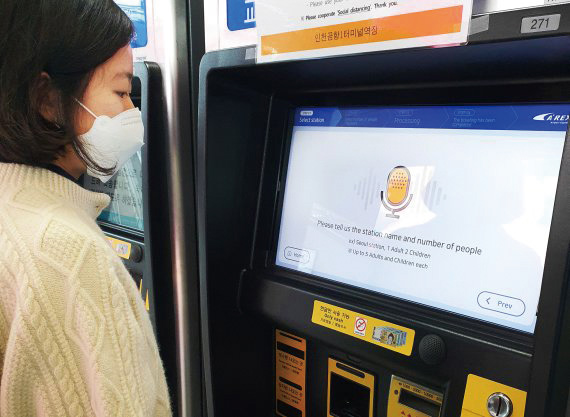
Train ticket vending machine using NAMZ Labs’ speech recognition and synthesis technology.
Accepting diversity within oneself
before reaching out to others
his example, you will be able to see mathematics in a more positive light, instead of simply backing away from it because of the stereotype that it is difficult and boring.
“AI is about making machines more human-like. The ultimate goal is to create ‘humans’, but today’s AI tends to set us aside. This is because the owners and developers of AI are not versed in the humanities.”
Professor Nam strongly believes that AI should be developed by humanities majors in order to become more human-like. He says to his students, "We must claim our ownership of AI and not leave it exclusively to from engineers. For this to happen, we must learn technology, and more fundamentally, mathematics.”
The pace of change delivered by the fourth industrial revolution is beyond imagination, and it almost seems like the fifth industrial revolution is near. The fourth has been an age of creating human-like machines, and the fifth may produce machine-like humans. In this day and age, diversity enhances the value of all that we have. NAMZ Labs recognized the significance of diversity, and broke free of the stereotype that humanities majors are incapable of AI research.
“Convergence can occur within a single person.
Bringing together various majors is more akin to cooperation,
and does not necessarily lead to convergence.”
study supplement each other. The lab has adopted a new model of convergence education and university-industry cooperation. “Convergence can occur within a single person. Bringing together various majors is more akin to cooperation, and does not necessarily lead to convergence. The form of convergence that is in demand these days is within those with transdisciplinary talent, the exemplar being for instance Leonardo da Vinci, who studied theology, philosophy, mathematics, astronomy, and engineering.
We should think about diversity from this perspective. All-inclusive diversity is important, but perhaps the very first step to take is to recognize the diversity within each and every one of us.”


